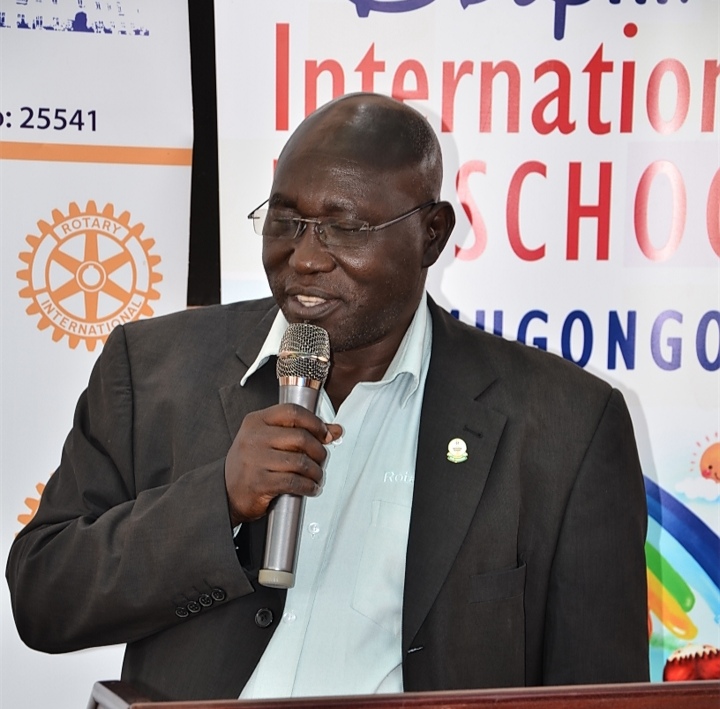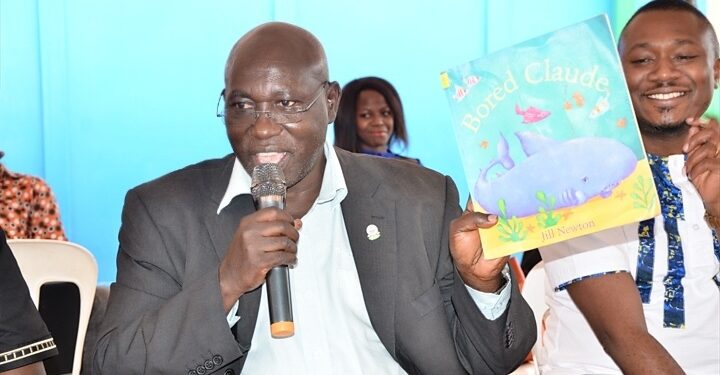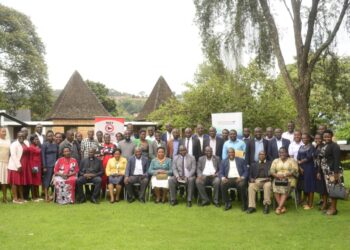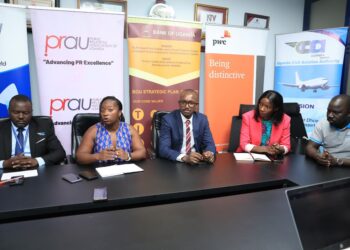Members of the Rotary Club of Kampala North District have tasked government for policy change to make basic education a priority as a way of eradicating illiteracy in Uganda.
Speaking to this website during the National Drop Everything And Read (DEAR) Day Celebrations on Friday at Dolphins International school, Dr Isaac Okullo, the President of Rotary Club of Kampala North said currently, basic education is not a priority in the learning processes of Uganda.
“Currently the emphasis is to make learners cram and pass exams but I have not seen any emphasis on reading, basic literacy. You have heard that every region must start teaching children in their own languages, this is a good thing as long as children know how to read in their local languages, it enhances their way of understanding and learning. UPE is a good program but the majority of pupils in this program don’t know how to read, this is not about the primary one, even primary six cannot read,” Dr Okullo said.

He added that in order to fight the challenge of pupils not knowing how to read, there is a deliberate effort needed to promote basic education starting from the lower learning institutions.
“As Rotary Club of Kampala North, we have come up with the program called Basic Education literacy Enhancement Program (BELEP) and we think we can use this project to push for basic education. We believe we can make reading a way of life. To see children read as well as children seeing adults read and if it’s repetitive, our children will adopt the culture of reading. There is no knowledge that you can think of without reading,” Dr Okullo noted.
“We can have skills but knowledge is found in reading, therefore basic education is a cornerstone for all areas. If we adopt the culture of reading, we will quicken the way we solve health problems, conflicts, water and sanitation because people would understand them through literacy.”
Rotarian Kyambadde Derick the proprietor of Dolphins International school where the event was held, said the major tool in education is literacy because it’s necessary and imperative at all levels of learning.

“However, we need to look back at the history of it so that you can analyze it now and intervene in it. History, literacy, reading and writing in the English language were introduced to Uganda in 1887, the intention of that time was actually different from the intentions which we are focusing on today but we still do it the same way it was done in 1887. The people who introduced it were interested in having a good substitute to access our natural resources,” Mr Kyambadde said.
He further stated that most people go to school to learn to work and work for the purposes of serving.
“With all due respect, all our talented and brainy children of the land go through all levels of education but are trained to serve not to discover or invent anything, the question is why despite the fact that they all read and are literate, what’s broken? What’s broken is the culture of education driven by the culture of reading, you see that also in the productivity of those who read and it’s coming directly on how they apply the reading.”
“But the readers and writers are one of the instruments that drive the country from being called the third world to a developed country because what characterizes the first and third world are people and skills, not academic papers or the flora and fauna. Therefore, what needs to be addressed in our education is going to skill set that we give to our children and analyse what skill is missing despite their academic success.”
According to Kyambadde, Ugandans academically excel but don’t produce individuals that can stir a nation into another stage of development.
“We are like a very good Rolls-Royce engine but placed on the table, not on wheels so we lack the driver that drives our academic skills to produce and what are those drivers in reality; critical thinking and reading are one of the avenues or proficient conduits through which we have to pass something but we don’t do that! That is what is happening. The culture of reading adds purpose in literacy.”
Meanwhile, National DEAR DAY, is a day that is celebrated every 1st July at exactly 11:00 am at the same time, on the very same day, everyone in schools and/or community organizations across Uganda put down what they are doing and engages in reading for the at least 20 minutes.
Do you have a story in your community or an opinion to share with us: Email us at editorial@watchdoguganda.com













